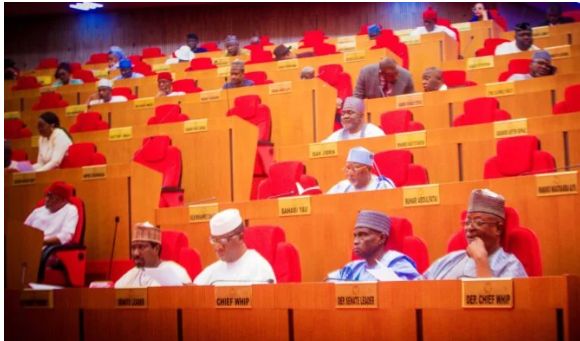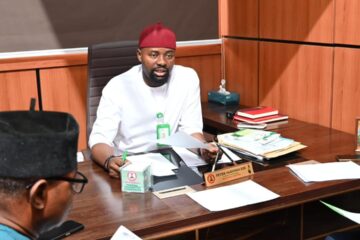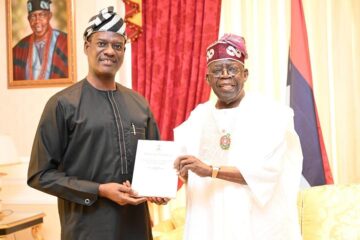Constituents Now Rely On Lawmakers For Rent, Naming Ceremony Funds Because Others Are Inaccessible — Senate Spokesman
Senate Spokesman, Yemi Adaramodu, has said that the responsibilities of Nigerian lawmakers extend far beyond their constitutional mandate of legislation and oversight, as constituents now depend heavily on them for personal financial support — including money for housing and naming ceremonies.
Speaking on Friday during an interview on Channels Television’s Politics Today, Adaramodu warned that Nigeria’s democracy could be jeopardised if any attempt is made to reduce the National Assembly to a part-time institution.
“If the parliament is on part-time, then it means democracy is on part-time,” the Ekiti South Senator said. “There is no democracy that derides its parliament and thrives.”
He emphasised that the legislature remains the bedrock of any democratic system and must not be weakened under the guise of cost-cutting. According to him, while other arms of government remain largely inaccessible to the average Nigerian, lawmakers are the most approachable representatives of government at the grassroots level.
“It will just be bewildering that even out of the three arms of government that we have in Nigeria, it is only the parliament and parliamentarians that our people have access to,” he stated.
“We go home almost every time and we are the ones when they give birth to a new baby, they ask for naming ceremony funds. When they are building a new house, it is from us they ask for assistance.”
Adaramodu argued that Nigerians increasingly turn to legislators for everyday needs, reinforcing the unique social role lawmakers play within their communities.
“The Nigerian parliament is not only for lawmaking; we do oversight function. We advocate for our constituents,” he added. “So, if the parliament was not there, who do you expect that our constituents would run to?”
The All Progressives Congress (APC) lawmaker defended the financial allocations made to legislators, noting that contrary to public perception, lawmakers do not receive undue privileges. He pointed out that housing allowances are not freely given but deducted monthly from lawmakers’ salaries, and official vehicles are not registered in their names.
“We are in Abuja, is it the National Assembly that is giving us housing? Is it the National Assembly that is employing domestic staff for us? We are here on our own,” he said. “We don’t get allowances for drivers. The allowances we get from housing are always deducted from our salaries. They give it once in four years and they deduct it every month.”
Adaramodu also pushed back against public criticism of lawmakers’ earnings. Referring to recent comments made by former Senator Shehu Sani, who claimed Senators now earn ₦21 million monthly — a claim the Senate has since refuted — Adaramodu said such narratives unfairly target the National Assembly.
“The National Assembly is the soft target of every critic,” he said, insisting that their compensation reflects the scale of the duties they perform, especially given the growing expectations from their constituents.
He concluded by questioning whether cost-saving arguments could still justify full remuneration even for part-time legislators — a point meant to challenge the logic behind recent calls for a part-time parliament.




